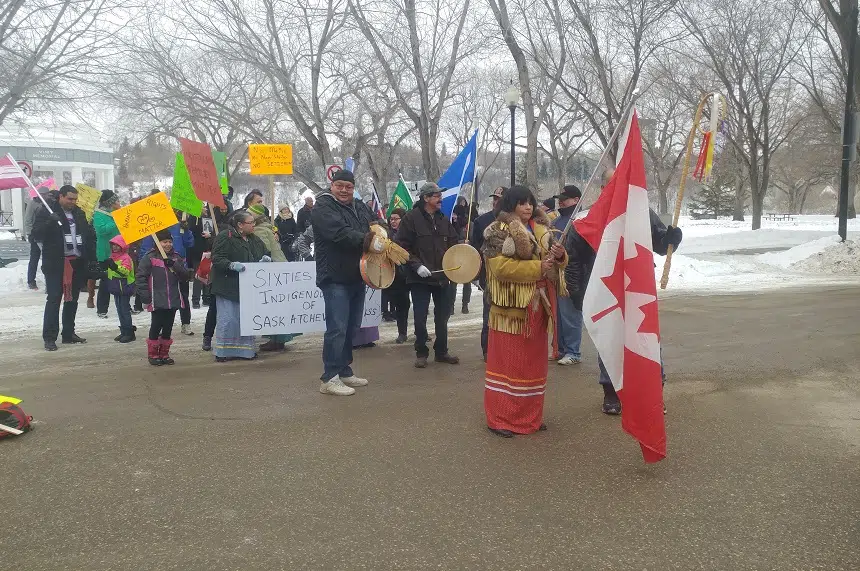Stories of pain and cultural reclamation were shared in Saskatoon Friday as survivors of the ’60s Scoop gathered for a national day of action.
About 70 people joined a march through the downtown core over the lunch hour, with many holding signs demanding action to help Indigenous people piece their families back together and heal.
“I didn’t even know I was Cree,” said Melissa Parkyn, who was taken from her home in Moosomin First Nation.
“I lost my identity, I lost my culture, I lost my language.”
The ’60s Scoop is the term used to describe the seizure of Indigenous children from their homes in the 1960s. The children were adopted into non-Indigenous families across the country.
Parkyn was one of several survivors to speak at the rally and march.
Robert Doucette, who is pushing the federal government to include Metis survivors in their 60’s Scoop settlement, helped organize the march.
He was taken from his family in 1962, and took years to reclaim his identity.
“My mother has never been the same,” he said. “It’s been a journey, and the journey’s not over.”
Doucette and others called on both the provincial and federal governments to work to keep Indigenous families together.
They noted children are still being taken away by social workers due to poverty and generational PTSD affecting their parents.
“Right now we have more kids in care than we did during the ’60s Scoop,” Doucette said.
“We have to find a better way because it really destroys families.”
Survivors from across the prairies joined the Saskatoon rally.
Albert Head travelled from Manitoba with his grandaughter to show her the importance of standing up for their culture.
“They have to grow up and see we have a great country that’s made some errors in the past,” he said.
The rally coincided with others across Canada.











